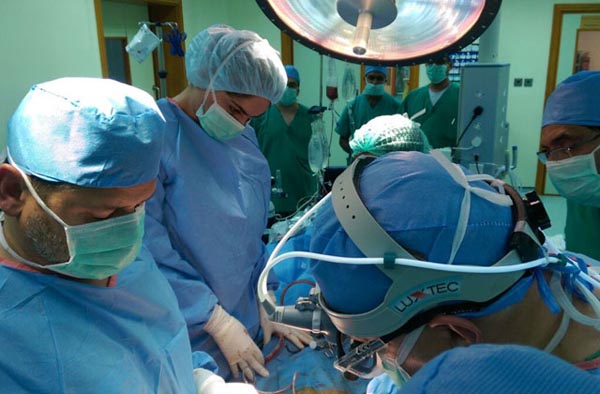Sharjah — Doctors from the Heart Centre at Al Qassimi Hospital in Sharjah gave a new lease of life to a 21-year-old young Emirati man who experienced a complete heart failure due to unknown reasons. The patient received an artificial heart in the first-ever such organ transplant carried out in the UAE.
His Highness Shaikh Mohammed bin Rashid Al Maktoum, Vice-President and Prime Minister of the UAE and Ruler of Dubai, congratulated the team of doctors for successfully conducting the first-of-its kind surgery.
Doctors from the hospital said on Thursday that they were racing against time to save the young man, who is a student. He was bed-ridden and was living with the support of an external assistive device for at least three weeks before he got the transplant done on June 22.
“We implanted the new version of the heart pump into the body of the patient in a five-hour long surgery, and yes this was done for the first time in the UAE,” said Dr Mohammed Abdul Aziz, Consultant Cardiac Surgeon who led the team.
The patient is currently in the ICU and will remain in the hospital for another two to three weeks before being allowed to go home.
Dr Arif Al Nooryani, CEO of Al Qassimi Hospital, said that the pump was fitted to support the left ventricle. “The case was very complicated and he couldn’t be allowed to travel…it was a race against time to save his life,” he explained.
“The patient woke up 48 hours after the surgery and is in good health,” he added. A team from Germany and the makers of the device were present during the surgery to offer technical assistance.
Doctors said that the patient would be able to live a normal life as chances of complications in future were quite less. “As a machine, it is perfect but there can be complications such as anti-coagulation and infection,” said Dr Aziz.
The artificial heart has been approved by the US Food and Drug Authority (FDA) and is considered as a ‘bridge’ until the patient is able to get a heart transplant.
The pump can stay in the human body for up to 10 years but may cause complications in young patients. “The patient can use this device until he gets a heart transplant,” said Dr Aziz.
The device needs to be recharged regularly, said Dr Aziz adding that it uses batteries (weighing upto 1.5kg) that can last upto 12 hours and can even be charged using a car charger.
“The patient has to be trained on how to use the device and charge the batteries before he is allowed to leave the hospital,” said Dr Aziz.
Doctors also said that the surgery had paved the way and given hope to patients with such complications for the future.



